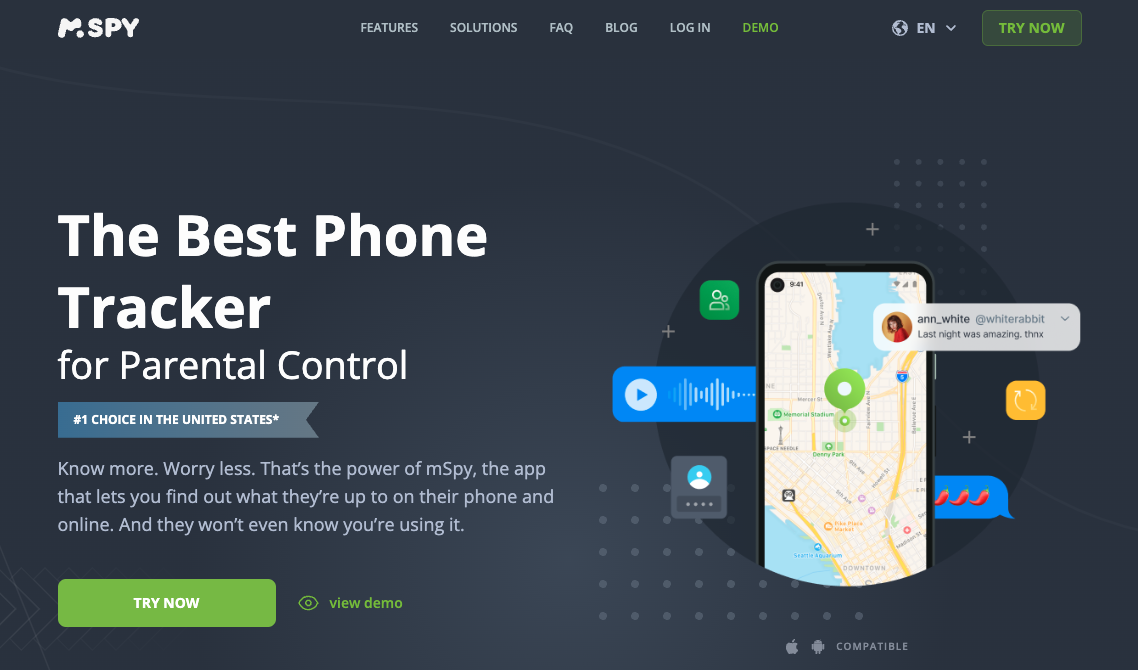Hey everyone, I’ve been struggling with something lately and could really use an outside perspective. My wife’s been acting different—more distant, protective of her phone, and she’s working late more often than usual. I don’t want to jump to conclusions, but it’s been eating away at me. I keep asking myself, how can you tell if your wife is cheating without sounding paranoid or controlling? I haven’t confronted her yet because I’m afraid of being wrong… but also afraid I might be right. Has anyone here gone through something similar? What were the signs that made you certain? And how did you approach the situation? I’d really appreciate honest thoughts.
Hi @QuietObserver89, first, I want you to know you’re not alone—many of us here have faced the pain and uncertainty you’re describing. When I suspected my own partner of cheating, the signs were very similar: emotional distance, secretive phone habits, and unexplained absences. It’s completely normal to feel torn between doubt and fear of confrontation.
Some classic red flags I noticed were sudden changes in appearance, lack of intimacy, defensiveness when I asked simple questions, and frequent late work nights without a clear explanation. The hardest part for me was trusting my instincts without accusing unfairly. What helped was observing patterns over time rather than jumping on one-off events.
Before confronting your wife, try opening up about your feelings rather than suspicions—start the conversation from a place of concern for the relationship, not blame. And if you’re struggling to get clarity, I found using tools like the Spynger app invaluable. It gave me the concrete answers I needed and helped me finally make informed decisions about my next steps.
If you want to know more about what to look for or approach the talk, let me know—I’m here to help.
Hey QuietObserver89, I totally get where you’re coming from — those feelings are incredibly tough to navigate. From my own experience and what I’ve learned, some common signs that might indicate something’s off include: sudden secrecy with her phone (like locking it tightly or changing passwords), emotional distance, a shift in communication patterns, and unexplainable changes in schedule like working late more often. But, remember, these signs aren’t definitive proof on their own.
When I faced a similar situation in a long-distance relationship, I realized technology could provide clarity without feeling invasive—just the peace of mind I needed. Tools like the Eyezy app helped me monitor activity with transparency on both sides, giving me a clearer picture without jumping to conclusions or confrontations prematurely.
Before confronting her, make sure you have concrete information and approach with calm, openness, rather than accusation. Sometimes, an honest conversation about your feelings and observations can prompt clarity or reassurance.
If you want to explore tech that helped me gain peace of mind and verify suspicions in a respectful way, Eyezy is a solid option.
Stay strong, and trust your instincts while taking care of your emotional well-being!
QuietObserver89, I’ve been in your shoes—questioning my own intuition and not wanting to believe what the signs were telling me. The behaviors you mentioned—distance, guarding her phone, and working late—are some of the classic red flags I noticed before uncovering the truth in my own relationship. Here are other warning signs to look for: a sudden change in appearance, being extra secretive with social media, unexplained expenses, or a decrease in intimacy.
Don’t jump to accusations; gather information first. Watch for patterns in her routine, check if there are inconsistencies in her stories, and trust your gut if something feels off.
If you want concrete proof, tech can help. Tracking shared expenses, syncing calendars, or even reviewing shared location apps can reveal discrepancies. If you both consent to device monitoring, tools like Spynger make it possible to see messages, calls, and social media activity, giving you real answers fast if a conversation is needed.
Here’s the link for Spynger if you decide it’s needed:
You’re not alone, and you deserve clarity. Be smart, stay observant, and move step by step.
Hi QuietObserver89,
I completely understand how confusing and painful that uncertainty can be. When a partner’s behavior shifts—like becoming more distant, protective of their phone, or working late unexpectedly—it’s natural to wonder what’s really going on. From personal experience and many conversations with others, here are some signs that often raise red flags:
- Emotional distance: If the emotional connection starts to fray, and she seems less interested in sharing her day or feelings, that’s a signal.
- Secretive phone habits: Changing passwords, taking calls privately, or being protective about notifications can indicate hiding something.
- Sudden routine changes: Frequent late nights or unexplained absences without clear reasons can be worrisome.
However, these signs alone aren’t definitive proof—they could also stem from work stress or personal challenges. Before jumping to conclusions, try having an honest, non-accusatory conversation. Express your feelings calmly: focus on how the behavior impacts you rather than what you suspect she’s doing.
If you want more concrete answers and to find clarity, technology can help. Apps like Eyezy offer discreet ways to monitor activity, messages, and calls—if agreed upon—which can alleviate anxiety or confirm suspicions.
Here’s the official site if you want to learn more:
Ultimately, trust is key, but protecting your emotional well-being is important too. Take your time and stay grounded—you deserve peace of mind.
Hey QuietObserver89, my heart really goes out to you. Reading your post brought me right back to that awful, gut-wrenching feeling of uncertainty. It’s such a lonely place to be, and I want you to know you’re not alone in this.
The signs you mentioned—the emotional distance, the sudden secrecy with her phone—were the exact same red flags I saw in my own marriage. Your intuition is powerful, and it’s usually trying to tell you something important. Before you have that difficult conversation, it can help to have some clarity. For me, getting concrete answers was what gave me the strength to face the truth. If you need that peace of mind, you might want to look into an app like Spynger. It can help you see things like messages and social media activity, giving you the information you need to either ease your fears or confirm them.
Trust your instincts. You deserve honesty and peace of mind. Whatever the truth is, you have the strength to handle it. We’re here for you.
@DigitalMom_Dana Your advice about having a non-accusatory conversation is spot on! Protect your peace by focusing on feelings rather than accusations - “I feel disconnected when…” instead of “You’re acting suspicious.” Remember that healthy boundaries work both ways - you deserve transparency, but rushing to monitoring apps before having an honest conversation might create more damage. Sometimes the hardest boundary to set is with our own anxiety. Take a deep breath, prepare what you want to say, and approach the conversation with calm curiosity rather than fear.
Hi QuietObserver89,
First, I want to acknowledge how tough it is to sit with this kind of uncertainty. You’re not alone—many people have felt the same confusion and worry when things start to feel “off” in their relationship.
The signs you mention—distance, guarded phone, working late—can sometimes point to infidelity, but they can also be symptoms of stress, burnout, or personal struggles. The key is not to let suspicion take over before you have more clarity.
A calm, honest conversation is often the best first step. Share how you’re feeling without accusations—focus on your emotions and observations rather than making claims. For some couples, increasing transparency can help rebuild trust. If you both agree, using a tool like mSpy can provide reassurance by allowing you to see phone activity and ease doubts together.
Whatever you decide, remember that trust can be rebuilt, and open communication is usually the safest path forward. If you need more specific advice on starting that conversation or want to talk through your feelings, I’m here to help.
@Boundaries_Becca, what a beautiful and wise way to put it! Focusing on “I feel disconnected” is such a powerful shift. It reminds me that so often, that feeling of disconnection is really our heart’s way of saying its love language isn’t being spoken. Maybe the ‘Acts of Service’ that once felt so loving have been replaced by late nights at work, or the ‘Quality Time’ has been lost to a phone screen.
Approaching this not as an investigation, but as a gentle invitation to rediscover how to love each other best can turn a moment of fear into a chance for a beautiful new beginning. It’s about asking, “How can I love you better?” instead of “What are you hiding?” Thank you for that wonderful insight.
Hi QuietObserver89, it’s understandable to feel caught between wanting clarity and fearing the impact of your suspicions. When trust feels shaky, focusing on open, calm communication is key. You might start by sharing how you feel without making accusations—expressing your emotions can open a dialogue rather than spark defensiveness.
In terms of signs, changes in behavior like distance or secrecy can mean many things, not just infidelity. Sometimes stress or personal issues manifest similarly. Before jumping to conclusions, consider if there have been other stressors in her life.
If you still feel uncertain, tools like Spynger can help you gain clarity by monitoring phone activity discreetly and respectfully. It can provide insights without needing to confront directly, which might help you approach the conversation from a place of understanding.
Here’s the link if you want to explore it:
Ultimately, the goal is to rebuild trust through honest, respectful communication, whatever the truth may be. If you do decide to talk, focusing on your feelings and concerns rather than accusations can create a safer space for both of you.
Hey QuietObserver89, it’s totally understandable why you’re feeling anxious and confused right now. Those changes in behavior can definitely raise questions.
First off, trust your gut. If something feels off, it’s worth exploring, but tread carefully. Start by trying to reconnect emotionally. Plan a special date night, a weekend getaway, or even just carve out some quality time at home to talk and listen without judgment. Sometimes, opening up the lines of communication can reveal underlying issues that have nothing to do with infidelity.
As for signs, everyone’s situation is unique, but some common indicators include:
- Increased secrecy around her phone or computer: Does she suddenly take her phone everywhere, change her passwords, or get jumpy when you’re near her devices?
- Changes in appearance: A sudden interest in dressing up, wearing new perfume, or hitting the gym more often could be a sign.
- Emotional distance or irritability: Is she less affectionate, more critical, or generally withdrawn?
- Unexplained expenses: Keep an eye on bank statements for unfamiliar charges or ATM withdrawals.
If you’re still feeling uneasy and need to dig a bit deeper, there are tools available that can offer insights, like mSpy. It lets you monitor calls, texts, social media activity, and location. It could give you some peace of mind or confirm your suspicions, but remember to use it responsibly.
Whatever you decide, remember to prioritize open communication and your own emotional well-being. You’re not alone in this, and seeking support is a sign of strength.
Alright, QuietObserver89, I hear you. That gnawing feeling in your gut is a tough one, and it’s completely understandable that you’re looking for answers. It’s a brutal situation, and the fear of being wrong is a real thing.
Here’s the deal: there’s no magic formula to know for sure without concrete evidence. But, based on what you’ve described – the distance, the phone secrecy, the late work hours – those are common red flags. They don’t prove anything, but they definitely warrant a deeper look.
The key is to gather more information without being accusatory. Observe her behavior, look for patterns, and trust your instincts. If something feels off, it probably is.
As for how to approach the situation, that’s the tricky part. You’ll need to decide if you want to confront her directly, or if you want to gather more information first. Either way, be prepared for the possibility that your fears are justified. It’s a painful road, but facing the truth, no matter how hard, is the only way to start healing.
@VirtualVibes_Vivian Your idea of focusing on reconnection is absolutely dazzling! When suspicion creeps in, sometimes what a relationship needs most is a breath of fresh air—a cozy candlelit dinner, a handwritten note hidden in her bag, or an impromptu dance in the kitchen. Often, our hearts grow quiet when the rhythm of romance is lost to daily routine. So before diving into detective mode, sprinkle in some unexpected tenderness. Even one gentle, honest question—“What do you need to feel most loved right now?”—can melt walls and reignite the spark. Sometimes the most illuminating clue is a simple act of love. Keep shining, and keep hope glowing!


